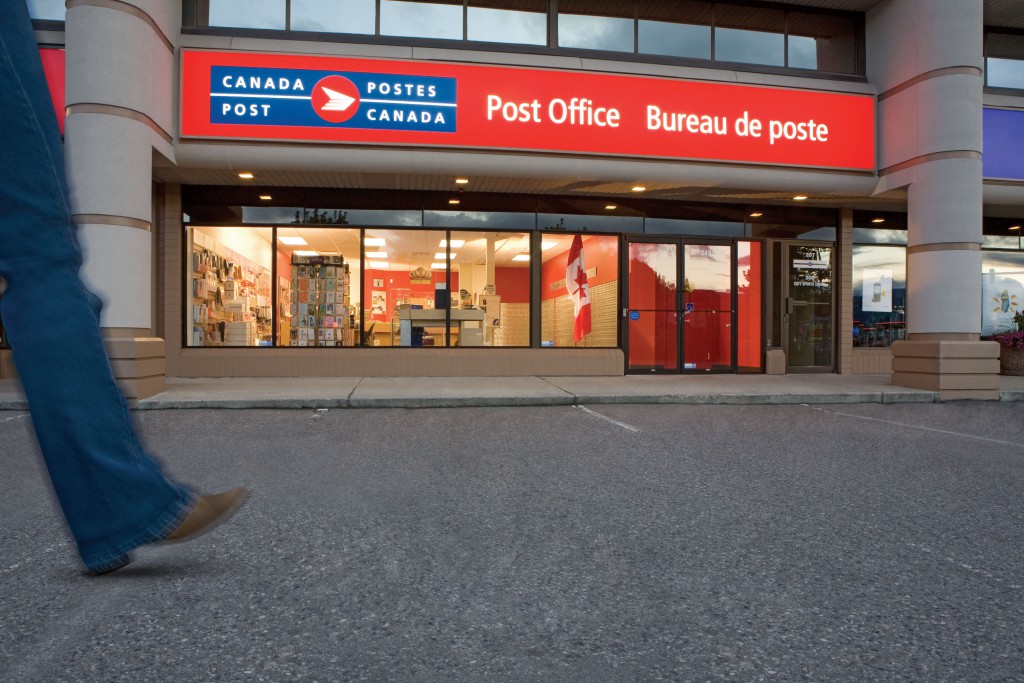Home delivery, postal banking among options to review
By Bret Evans
The federal government has announced an extensive review of Canada Post operations, including the future of home delivery and postal banking.
Judy Foote, Minister of Public Services and Procurement and Minister Responsible for Canada Post, announced today the two-step review process would start with a four-member task force looking at all of Canada Post’s existing and potential operations and services. The task force will then make recommendations to a parliamentary committee, which would seek input from Canadians across the country before making a final recommendation to Parliament.
The entire process is expected to take a year.
“Canada Post has long connected Canadians across the country,” Foote said.
“It is part of our history, our national fabric, and our daily life.”
Foote said the mandate of the task force was to look at getting Canadians the service they wanted at a reasonable price, but added Canada Post would have to be self-sustaining. She refused to discuss if completely eliminating home delivery was an option, adding some Canadians were in favour of superboxes while others were opposed. She did say retaining home deliver was an option but suggested the frequency may change, depending on the task force’s recommendations.
“We need to look at every possible option,” she said. “We need to look at the services that they expect, we heard from some Canadians that [home delivery] may not be the way to go.
“It is an option to restore.
“But I am not going to prejudge the outcome.”
Foote said the review would be thorough and different from any before and promised it would be transparent and evidence-based with a focus on needs and expectations.
Among those options could be setting up banking services through Canada Post outlets.
“We’re not ruling out anything,” Foote said. “When we talk about lines of business it could be anything.”
Once the recommendation is made it will be turned over to a bi-partisan parliamentary committee with members from all parties. They would be encouraged to seek imput from Canada Post, postal unions, and most importantly average Canadians.
“We want to hear from citizens. Canadians must have a say in any major decisions about Canada Post,” she said.
The first phase, expected to take until the end of summer, would include collecting information and looking at the best practices internationally to prepare a study paper for Parliament. That paper, expected to be completed by the end of summer, will present viable options.
During the next stage, expected to take until December of this year, Canadians will be given their voice. Foote hopes individual Members of Parliament will welcome the opportunity to contact their own constituents and discover their views.
“Postal services matter to Canadians, and we want to hear from as many as possible,” she said.
Canadians will also be encouraged to offer their views through social media, by the mail, and through a website set up for the review at canada.ca/canadapostreview. In addition, Foote said the Parliamentary Committee would “go on the road” to seek the opinions of Canadians “from coast to coast to coast.”
Once the Parliamentary committee makes their report, Parliament will decide on the final course of action, she said.
“That will probably be by April, 2017.”
The entire process is expected to cost $2 million. Foote said that money would be paid by the government, not Canada Post, using money in the existing budget.
Françoise Bertrand, of Quebec, has been named chair of the panel. The other members are Marena McLaughlin, of New Brunswick; Krystyna Hoeg, of Ontario; and Jim Hopson, of Saskatchewan.
Foote said they would bring a broad perspective to the task.
“These individuals have each made their mark over course of years.”
The process is not without some controversy.
Hoeg, who sits on board of several corporations, is a former board member of Shoppers Drug Mart Corp., a business which operates a large number of revenue post offices.
Foote said she did not believe that Hoeg’s former involvement with that firm would cause any problems.
Similarly, the Canadian Union of Postal Workers, which is currently involved in contract with Canada Post, had wanted any review to wait until a new contract was reached.
The entire review is also being viewed in the context of a Liberal campaign promise to restore and retain home delivery.
Foote said while she didn’t want to anticipate the result of the review, exactly how often and what sort of delivery was going to be determined by the expressed needs of Canadians.
The cancellation of home delivery was part of a plan Canada Post proposed before the 2015 election. That plan, which was approved by the government of Stephen Harper, would see all home delivery eliminated in favour of superboxes over several years. The plan was based on Canada Post’s own recommendations and plans; while there was no public consultation, Canada Post CEO Deepak Chopra did make several appearances and went on some radio call-in shows to defend the plan his firm had created.
The process of shutting down home delivery underway during the election, and a number of superboxes had been put into operation in cities across Canada. The process was halted by government order shortly after the election of Prime Minister Justin Trudeau.
Foote said restoring home delivery to those who lost it before the election was a matter for the committee, again stating home delivery could be less than five days a week. She also declined to comment on the possibility of extending home delivery to areas built since the 1980s that have never had home delivery.
One thing that is not on the agenda is privatization of Canada Post; Foote said that was clearly not an option.

